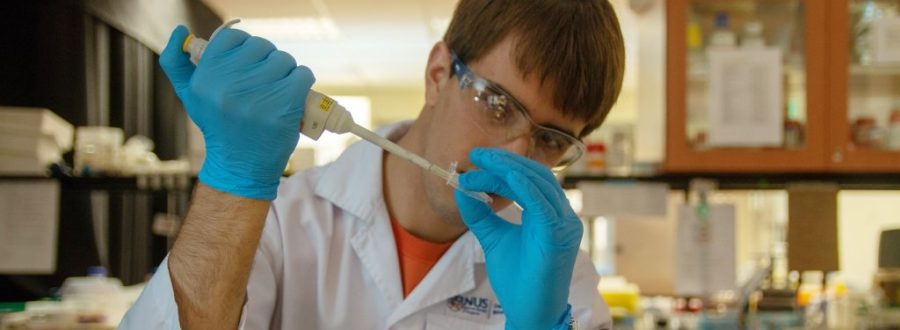
Three Michigan Tech students, Greta Pryor Colford, Dylan Gaines and Seth A. Kriz, have been awarded National Science Foundation (NSF) Graduate Research Fellowships. The oldest STEM-related fellowship program in the United States, the NSF Graduate Research Fellowship Program (GRFP) is a prestigious award that recognizes exceptional graduate students in science, technology, engineering and mathematics (STEM) disciplines early in their career and supports them through graduate education. NSF-GRFP fellows are an exceptional group; 42 fellows have gone on to become Nobel Laureates, and about 450 fellows are members of the National Academy of Sciences.
The Graduate School is proud of these students for their outstanding scholarship. These awards highlight the quality of students at Michigan Tech, the innovative work they have accomplished, the potential for leadership and impact in science and engineering that the county recognizes in these students, and the incredible role that faculty play in students’ academic success.
Dylan Gaines is currently a master of science student in the Computer Science Department at Michigan Tech, he will begin his doctoral degree in the same program in Fall 2020. Gaines’ research, with Keith Vertanen (CS), focuses on text entry techniques for people with visual impairments. He also plans to develop assistive technologies for use in Augmented Reality. During his undergraduate education at Michigan Tech, Gaines was a member of the cross country and track teams. Now, he serves as a graduate assistant coach. “I am very thankful for this award and everyone that supported me through the application process and helped to review my essays” said Gaines. Commenting on Gaines’ award, Computer Science Department Chair Linda Ott explained “All of us in the Department of Computer Science are very excited that Dylan is being awarded a NSF Graduate Research Fellowship. This is a clear affirmation that Dylan is an excellent student and that even as an undergraduate he demonstrated strong research skills. It also is a tribute to Dylan’s advisor Dr. Keith Vertanen who has established a very successful research group in intelligent interactive systems.”
Seth A. Kriz is pursuing his doctoral degree in chemical engineering, with Caryn Heldt (ChE). He completed his undergraduate education, also in chemical engineering, at Michigan Tech and has previously served as the lead coach of the Chemical Engineering Learning Center. His research focuses on developing improved virus purification methods for large-scale vaccine production so as to provide a timely response to pandemics. “I am extremely proud to represent Michigan Tech and my lab as an NSF graduate research fellow, and for this opportunity to do research that will save lives. My success has been made possible by the incredible family, faculty, and larger community around me, and I thank everyone for their support. Go Huskies!” said Kriz. Commenting on the award, Kriz’s advisor, Heldt said “Seth embodies many of the characteristics we hope to see in our students: excellence in scholarship, high work ethic, and a strong desire to give back to his community. I’m extremely proud of his accomplishments and I can’t wait to see what else he will do.” In addition, Kriz sings with the Michigan Tech Chamber Choir.
Greta Pryor Colford earned her bachelor’s degree in mechanical engineering and a minor in aerospace engineering from Michigan Tech in spring 2019. She is currently a post-baccalaureate student at Los Alamos National Laboratory, where she previously worked as an undergraduate and summer intern. At Los Alamos National Laboratory, Colford is part of the Test Engineering group (E-14) of the Engineering, Technology and Design Division (E). At Michigan Tech, she was a leader of the Attitude Determination and Control Team of the Michigan Tech Aerospace Enterprise, a writing coach at the Multiliteracies Center, and a member of the Undergraduate Student Government.
The fellowship provides three years of financial support, including a $34,000 stipend for each fellow and a $12,000 cost-of-education allowance for the fellow’s institution. Besides financial support for fellows, the GRFP provides opportunities for research on national laboratories and international research.
By the Graduate School.